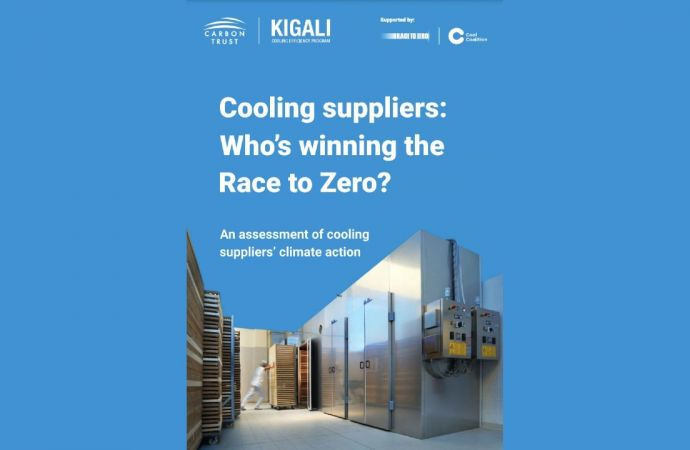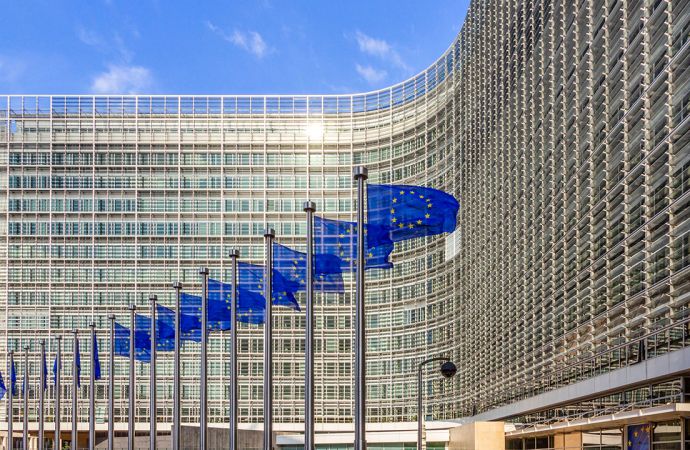On 22 January 2014, the European Commission published a White Paper outlining the EU’s climate and energy framework for 2030. The document, also known as the Climate and Energy Package 2030, foresees a reduction of GHG emissions of 40% below the 1990 levels and an EU-wide binding target for renewable energy of at least 27%.

2030 Framework
The European Commission believes that the 40% target for reducing GHG emissions is a cost-effective track that will help the EU move towards meeting the 2050 objective of an 80-95% emissions cut.
In addition to that an EU-wide target for renewable energy is set which would foresee a share of at least 27% of renewables in energy consumption. Unlike the current targets concerning 2020, the 2030 EU-wide target will not be further reflected into binding national targets by Member States, and each country will be free to choose their own voluntary national objectives.
Energy efficiency is meant to be one of they key components of the 2030 framework, but the White Paper fails to specify the details. The Commission promises to assess it later following an analysis of the progress made towards achieving 2020 energy efficiency target.
The Climate Package also includes some changes to the EU Emission Trading Scheme (ETS) as of 2021 such as establishing a market stability reserve.
Climate in view of European Industrial Renaissance
Along with the White Paper on the EU`s Climate and Energy Package 2030, a communication for a European Industrial Renaissance was also published. European Commission Vice President Antonio Tajani, responsible for industry and entrepreneurship, emphasised that climate targets must be realistic in order not to harm the European businesses.
“I am aware of the need to reduce our greenhouse gas emissions. But we must be realistic. We also need to be aware of the goals of our companies. If the climate targets are too ambitious, or they are not established in the context of an international agreement, they will kill our business,” said Tajani.
Mixed reactions from the industries
The Association of European Chambers of Commerce and Industry EUROCHAMBRES in its statement echoed concerns of Commissioner Tajani. “Without creating a global level-playing field, a target of 40% or above would undermine any efforts to reindustrialise Europe,” reads the Association’s statement. EUROCHAMBRES also welcomed the Commission’s decision to abstain from a binding target for energy efficiency.
In the meantime the European Renewable Energy Council (EREC), representing the European renewable energy industry, blames the European Commission for acting against the EU leadership and proposing unambitious climate and energy framework for 2030. According to the EREC, the new Climate package letting the EU Members States to find an EU-wide solution for renewable energy target, is moving towards re-nationalisation of energy policies which ultimately will lead to less growth, fewer jobs and more spending on fossil fuel imports.
“If you wanted to shift investments further away from Europe, you would go about it no other way. The Commission is weakening the EU’s international competitiveness and industrial leadership,” says EREC’s President, Rainer Hinrichs-Rahlwes in a press release.
Criticism from the European Parliament
Reactions to the Commission’s announcement from the European Parliament have been also critical. The European People’s Party in a statement expressed concerns that the EU is neglecting the roll-out of more renewable energies, while the Greens/EFTA group called the EU’s climate policy conservative and blamed the Commission for bringing EU policies on climate change and renewable energy to a virtual standstill.
"The 2030 greenhouse gas reduction target included in the proposals displays a shameful scale-back of ambition. This is essentially business-as-usual and a far cry from the halcyon days of the EU's self-heralded climate change leadership," said MEP Bas Eickhout from the Greens in a statement.
Next Steps
The Framework has to be endorsed by the Council representing the EU Member States and European Parliament. The European Member States are expected to discuss the 2030 Climate and Energy Framework on 20-21 March 2014.
Background
In 2009, the EU leaders agreed to an ambitious Climate and Energy Package, which set out the key climate and energy objectives for 2020. The targets know as “20-20-20” included:
The European Commission believes that the 40% target for reducing GHG emissions is a cost-effective track that will help the EU move towards meeting the 2050 objective of an 80-95% emissions cut.
In addition to that an EU-wide target for renewable energy is set which would foresee a share of at least 27% of renewables in energy consumption. Unlike the current targets concerning 2020, the 2030 EU-wide target will not be further reflected into binding national targets by Member States, and each country will be free to choose their own voluntary national objectives.
Energy efficiency is meant to be one of they key components of the 2030 framework, but the White Paper fails to specify the details. The Commission promises to assess it later following an analysis of the progress made towards achieving 2020 energy efficiency target.
The Climate Package also includes some changes to the EU Emission Trading Scheme (ETS) as of 2021 such as establishing a market stability reserve.
Climate in view of European Industrial Renaissance
Along with the White Paper on the EU`s Climate and Energy Package 2030, a communication for a European Industrial Renaissance was also published. European Commission Vice President Antonio Tajani, responsible for industry and entrepreneurship, emphasised that climate targets must be realistic in order not to harm the European businesses.
“I am aware of the need to reduce our greenhouse gas emissions. But we must be realistic. We also need to be aware of the goals of our companies. If the climate targets are too ambitious, or they are not established in the context of an international agreement, they will kill our business,” said Tajani.
Mixed reactions from the industries
The Association of European Chambers of Commerce and Industry EUROCHAMBRES in its statement echoed concerns of Commissioner Tajani. “Without creating a global level-playing field, a target of 40% or above would undermine any efforts to reindustrialise Europe,” reads the Association’s statement. EUROCHAMBRES also welcomed the Commission’s decision to abstain from a binding target for energy efficiency.
In the meantime the European Renewable Energy Council (EREC), representing the European renewable energy industry, blames the European Commission for acting against the EU leadership and proposing unambitious climate and energy framework for 2030. According to the EREC, the new Climate package letting the EU Members States to find an EU-wide solution for renewable energy target, is moving towards re-nationalisation of energy policies which ultimately will lead to less growth, fewer jobs and more spending on fossil fuel imports.
“If you wanted to shift investments further away from Europe, you would go about it no other way. The Commission is weakening the EU’s international competitiveness and industrial leadership,” says EREC’s President, Rainer Hinrichs-Rahlwes in a press release.
Criticism from the European Parliament
Reactions to the Commission’s announcement from the European Parliament have been also critical. The European People’s Party in a statement expressed concerns that the EU is neglecting the roll-out of more renewable energies, while the Greens/EFTA group called the EU’s climate policy conservative and blamed the Commission for bringing EU policies on climate change and renewable energy to a virtual standstill.
"The 2030 greenhouse gas reduction target included in the proposals displays a shameful scale-back of ambition. This is essentially business-as-usual and a far cry from the halcyon days of the EU's self-heralded climate change leadership," said MEP Bas Eickhout from the Greens in a statement.
Next Steps
The Framework has to be endorsed by the Council representing the EU Member States and European Parliament. The European Member States are expected to discuss the 2030 Climate and Energy Framework on 20-21 March 2014.
Background
In 2009, the EU leaders agreed to an ambitious Climate and Energy Package, which set out the key climate and energy objectives for 2020. The targets know as “20-20-20” included:
- A 20% reduction in EU greenhouse gas emissions from 1990 levels;
- Raising the share of EU energy consumption produced from renewable resources to 20%;
- A 20% improvement in the EU's energy efficiency.
MORE INFORMATION
Related stories



